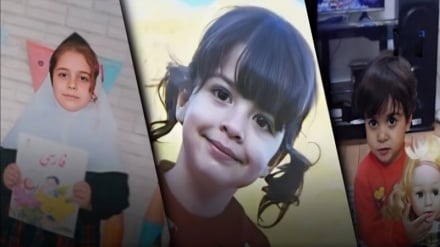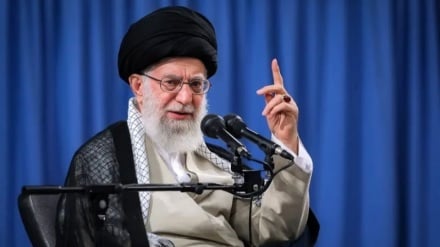Terrorism, a global threat (5)
Terrorism is an unwanted phenomenon, which is rejected and condemned in any form or shape. When terrorist ringleaders claim to be concerned over terrorism, identification of the perpetrators and supporters of terrorism becomes a difficult task.
Amid this controversy, those who allege to champion the campaign against terrorism are ironically an integral part of terrorism, which has mushroomed throughout the region. Meanwhile, what parameters have contributed to escalation of terrorism? This is the question which we intend to study today.
Some researchers opine that the root causes and motives behind acts of terrorism depend on the type of terrorist operations and those who have committed these acts of terrorism. A number of factors can be taken into consideration in this regard. However, generally speaking, these motives and factors can be classified into two categories, which are namely personal and social motives.
The studies which have been carried out in this domain, point to a direct link between problematic physical, mental, and emotional growth and an unhealthy social environment, with terrorist operations.
In many cases, terrorist operations are politically motivated. Some of the approaches of ruling systems with their citizens; such as imposition of unjust policies; marginalization of citizens; and violence of their rights and freedoms which lead citizens to sense political suppression, could make them to conclude that they play no role in the community; thereby prompting them to resort to terrorist operations in order to draw the attention of the ruling systems to their demands; although acts of terrorism are always untenable and unjustified.
Another factor, which contributes to formation of abnormal social and political behavioral patterns, is the result of advancement of technology in communication tools. These powerful media have led to dissemination of news through particular channels, and even conveyance of wrong messages, which are taken advantage of by terrorist currents.
In a number of cases, the goal of terrorist operations is to draw the attention of the public opinion toward a particular subject or current. In this domain; cyber, social, and media networks are means that terrorists put to use to express their demands and views and to elaborate on their goals. This is what terrorist outfits such as Al-Qaeda and Daesh are doing in Iraq and Syria.
Meanwhile, terrorists are making use of the state-of-the-art technologies, launching their own networks and websites, promoting their acts of terrorism.
Some media, via dissemination of reports, play a role in depicting a heroic image of terrorists, which leads some to imitate terrorists and follow their footsteps; including thousands of impressionable youths who have joined Daesh terrorist outfit.
At times, the community in which the terrorist lives has highly contributed to misguidance of the related operative. Poverty and financial needs can leave negative social impacts.
Moreover, acts of terrorism and terrorist behavioral patterns can also be caused by the widening gap between the poor and wealthy; inappropriate distribution of wealth; and failure to meet the fundamental needs of people, which sabotages social justice.
In some cases, historical developments and/or ethnical motives can drive some groups in the community toward acts of violence and terrorist operations against another group, such as what happened in Bosnia and Kosovo, or the incidents which have taken place in some African countries. Also, at times, blind prejudice and radical currents could provoke acts of violence by a particular group; with the intention of imposition of its prejudices on the community. The prime examples of such cases are the confrontations between capitalism and socialism, between Protestants and Catholics, and/or between Muslims and Hindus in India.
Despite of these factors, whenever there is a mention of an act of terrorism in any part of the world; Muslims are baselessly accused; even when the identity and motives of the related terrorist are yet to be known.
This is while everyone knows that Europe in the second half of 20th Century was grappling with homegrown terrorism, such as the incidents which took place in Ireland, and/or Basque region in Spain. Prior to 9/11, the US was also threatened by homegrown terrorism.
Furthermore, many terrorist operations have occurred in the global scene which have had nothing to do with Muslims, such as emission of toxic gases in Japan’s underground stations and/or destruction of a mosque in India by radical Hindus.
Obviously, concerns over terrorism should not be taken lightly. If such concerns would be expressed in a realistic and constructive manner, this will undoubtedly highly contribute to provision of security and the global campaign against radicalism and violence.
Surely, the unwanted phenomenon of terrorism is one of the major problems of human community, posing threats against global peace and security, especially in the past hundred years.
In fact, terrorism is a global threat which has no boundaries. However, there are still a number of individuals, who wrongly imagine support for terrorism and Daesh terrorist outfit is in line with their interests. This attitude should change. Some imagine that their security is maintained by sabotaging others’ security. However, experience has shown otherwise.
Meanwhile, the Islamic Republic of Iran attaches paramount importance to the campaign against terrorism and has on several occasions pointed out that the West maintains double standards in the struggle against terrorism.
Iran, as a country which has been the victim of terrorism, fully understands the necessity and importance of an actual struggle against terrorism.
MR/EA


